第2章 CHAPTER 1(2)
I do not mention these difficulties to complain of them; first, use itwould be useless; they are inseparable from having to contend through people'sunderstandings against the hostility their feelings and practical tendencies: and truly the understandings of the majority of mankind would need to bemuch better cultivated than has ever yet been the case, before they be askedto place such reliance in their own power of estimating arguments, as togive up practical principles in which have been born and bred and which arethe basis of much existing order of the world, at the first argumentativeattack which they are not capable of logically resisting. I do not thereforequarrel with them for having too little faith in argument, but for havingtoo much faith in custom and the general feeling. It is one of the characteristicprejudices of the ion of the nineteenth century against the eighteenth, toaccord to the unreasoning elements in human nature the infallibility whichthe eighteenth century is supposed to have ascribed to the reasoning elements.
For the apotheosis of Reason we have substituted that of Instinct; and wecall thing instinct which we find in ourselves and for which we cannot traceany rational foundation. This idolatry, infinitely more degrading than theother, and the most pernicious of the false worships of the present day,of all of which it is the main support, will probably hold its ground untilit way before a sound psychology laying bare the real root of much that isbowed down to as the intention of Nature and ordinance of God. As regardsthe present question, I am going to accept the unfavourable conditions whichthe prejudice assigns to me. I consent that established custom, and the generalfeelings, should be deemed conclusive against me, unless that custom andfeeling from age to age can be shown to have owed their existence to othercauses than their soundness, and to have derived their power from the worserather than the better parts of human nature. I am willing that judgmentshould go against me, unless I can show that my judge has been tampered with.
The concession is not so great as it might appear; for to prove this, isby far the easiest portion of my task.
The generality of a practice is in some cases a strong presumption thatit is, or at all events once was, conducive to laudable ends. This is thecase, when the practice was first adopted, or afterwards kept up, as a meansto such ends, and was grounded on experience of the mode in which they couldbe most effectually attained. If the authority of men over women, when firstestablished, had been the result of a conscientious comparison between differentmodes of constituting the government of society; if, after trying variousother modes of social organisation -- the government of women over men, equalitybetween the two, and such mixed and divided modes of government as mightbe invented -- it had been decided, on the testimony of experience, thatthe mode in which women are wholly under the rule of men, having no shareat all in public concerns, and each in private being under the legal obligationof obedience to the man with whom she has associated her destiny, was thearrangement most conducive to the happiness and well-being of both; its generaladoption might then be fairly thought to be some evidence that, at the timewhen it was adopted, it was the best: though even then the considerationswhich recommended it may, like so many other primeval social facts of thegreatest importance, have subsequently, in the course of ages, ceased toexist. But the state of the case is in every respect the reverse of this.
In the first place, the opinion in favour of the present system, which entirelysubordinates the weaker sex to the stronger, rests upon theory only; forthere never has been trial made of any other: so that experience, in thesense in which it is vulgarly opposed to theory, cannot be pretended to havepronounced any verdict. And in the second place, the adoption of this systemof inequality never was the result of deliberation, or forethought, or anysocial ideas, or any notion whatever of what conduced to the benefit of humanityor the good order of society. It arose simply from the fact that from thevery earliest twilight of human society, every woman owing to the value attachedto her by men, combined with her inferiority in muscular strength) was foundin a state of bondage to some man. Laws and systems of polity always beginby recognising the relations they find already existing between individuals.
They convert what was a mere physical fact into a legal right, give it thesanction of society, and principally aim at the substitution of public andorganised means of asserting and protecting these rights, instead of theirregular and lawless conflict of physical strength. Those who had alreadybeen compelled to obedience became in this manner legally bound to it. Slavery,from be inn a mere affair of force between the master and the slave, becameregularised and a matter of compact among the masters, who, binding themselvesto one another for common protection, guaranteed by their collective strengththe private possessions of each, including his slaves. In early times, thegreat majority of the male sex were slaves, as well as the whole of the female.